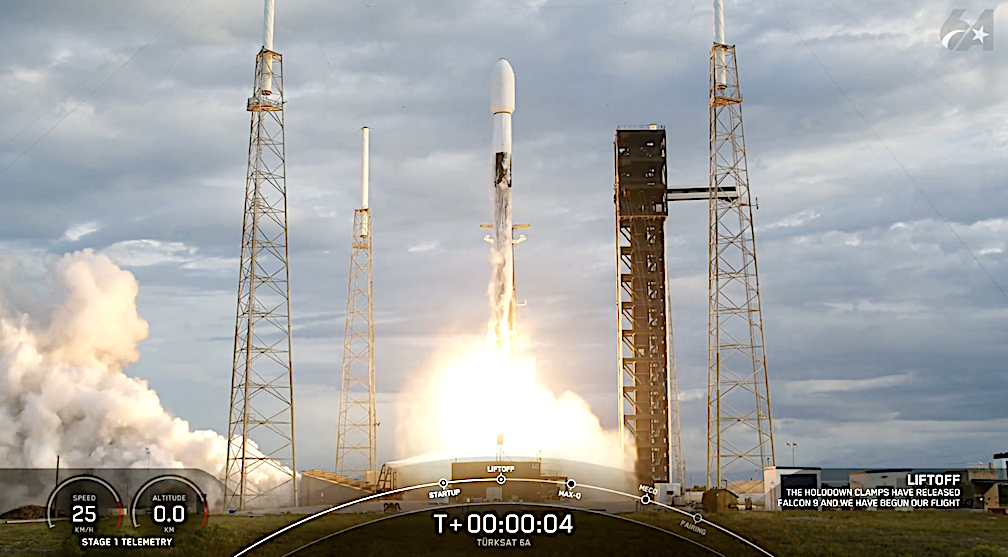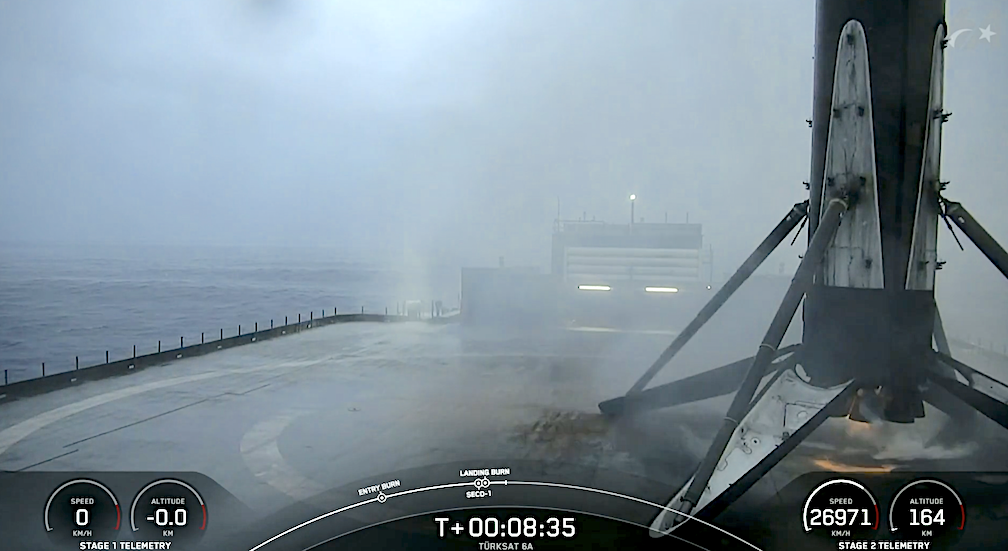
On Monday, July 8 at 7:30 p.m. ET, SpaceX launched the Turksat 6A mission to geosynchronous transfer orbit from Space Launch Complex 40 (SLC-40) at Cape Canaveral Space Force Station in Florida. SpaceX succeeded in launching Turkey’s first home grown communications satellite despite a delay due to weather. The Sunday weather report report from the 45th Weather Squadron forecast only a 30 percent chance of favorable weather at liftoff for both the primary and backup dates and thunderstorms that could bring with them winds of 40 miles per hour or greater.
“Convective activity should taper off after sunset, but steering winds are expected to be weak, possibly extending any weather violations that occur. Conditions are expected to be similar for the backup day,” the weather report stated. “The Cumulus Cloud, both Anvil Cloud, and Surface Electric Fields are the most likely rules to violate on both the primary and backup days.”
Prior to the mission’s launch, Turkey’s Minister of Transport and Infrastructure Abdulkadir Uraloğlu called the Türksat 6A geostationary satellite “the symbol of our independence”.

This was the ninth flight of the first stage booster supporting this mission, which previously launched CRS-26, OneWeb Launch 16, Intelsat IS-40e, O3b mPOWER, Ovzon 3, Eutelsat 36D, and eight Starlink missions.

Turkish President Recep Tayyip Erdoğan expressed his gratitude to SpaceX’ founder Elon Musk on X (formerly Twitter) saying that his country is “pleased to strengthen our cooperation with Mr. Elon Musk and SpaceX in various fields.”
SpaceX Türksat 6A comsat planned for Monday
“Convective activity should taper off after sunset, but steering winds are expected to be weak, possibly extending any weather violations that occur. Conditions are expected to be similar for the backup day,” the weather report stated. “The Cumulus Cloud, both Anvil Cloud, and Surface Electric Fields are the most likely rules to violate on both the primary and backup days.”

If on schedule Falcon 9 will launch Türksat 6A communications satellite for the Turkish operator Türksat first from SLC-40, Cape Canaveral Space Force Station, Florida, from 5:20-9:43 p.m. EDT.

Türksat 6A is the first geostationary communications satellite to be built in Turkey, with development led by TÜBİTAK Space Technologies Research Institute and Turkish Aerospace Industries. It will operate at the 42° East orbital position providing services to customers in Turkey, as well as in Europe, Northern coast of Africa, Middle East, India and Indonesia. Delayed from 2nd Quarter 2023 and March 2024, and launch moved up from July 9.
The forecast calls for a temperature of 88°F, light rain, 100% cloud cover, a wind speed of 13mph and 0.29in of rain.
